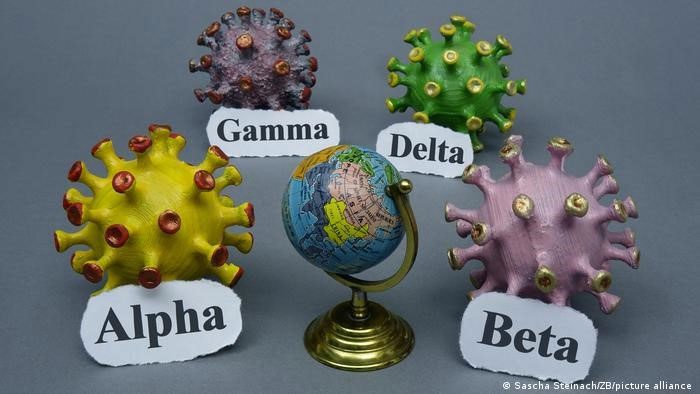Young people and those who are not fully vaccinated remain at high risk of contracting the Delta variant of nCoV, while older adults face the highest risk of death.
The Delta variant is currently under close surveillance due to its ability to spread more rapidly than other nCoV strains, increasing the risk of hospitalization and vaccine resistance. Delta was first identified in India in late 2020, causing a second wave of infections in the country that resulted in thousands of deaths. This variant is now spreading rapidly in 92 countries.
Last week, the World Health Organization (WHO) warned that Delta is the fastest and strongest variant. This variant is taking down the most vulnerable individuals, especially in areas with low Covid-19 vaccination rates. The increased risk of hospitalization can lead to a higher risk of death for patients with underlying conditions such as diabetes, cardiovascular diseases, or obesity.
Attention is now focused on the UK, where Delta predominates despite high vaccination rates. The situation in the UK could serve as a forecast for the global pandemic trajectory.

Variants of the nCov virus.
Most Vulnerable Groups
According to the latest data from Public Health England (PHE), Delta is present in 95% of sequenced virus samples. Young people, those who are unvaccinated, and individuals who have only received one vaccine dose are at a higher risk of infection, while older adults are at the highest risk of death from Covid-19.
From early February to mid-June, 92,029 virus samples containing the Delta variant were sequenced. Of these, nearly 82,500 samples came from individuals under 50 years old, and 53,822 samples were from unvaccinated individuals.
In the unvaccinated group, the majority were under 50 years old (52,846 cases), with only 976 cases in those over 50. However, most of the 117 deaths occurred in individuals over 50. Eight individuals under 50 died, of which six were unvaccinated, and the other two had received one dose.
Impact of the Variant on Vaccinated Individuals
Data from the UK indicates that individuals who have received one vaccine dose or are fully vaccinated can still contract the Delta variant, but their illness tends to be milder. This underscores the importance of complete vaccination.
Among the 92,029 Delta infections, nearly 20,000 cases had received one vaccine dose, and 7,235 individuals had received two doses. PHE’s research shows that two doses of the Pfizer-BioNTech or AstraZeneca vaccines are highly effective in preventing the Delta variant. However, this data serves as a reminder that while vaccines offer high levels of protection, they do not provide 100% immunity.
AP’s analysis of US government data from May shows that breakthrough infections after Covid-19 vaccination accounted for only 1,200 cases, around 0.1%, of over 850,000 infections requiring hospitalization.
Vaccinated individuals in the US also comprised only about 150 of over 18,000 deaths in May. This figure represents approximately 0.8% of new Covid-19 deaths in the country.
Andy Slavitt, former advisor to President Joe Biden on Covid-19, remarked earlier this month that 98-99% of deaths from nCoV in the US are among those who are unvaccinated.


















































